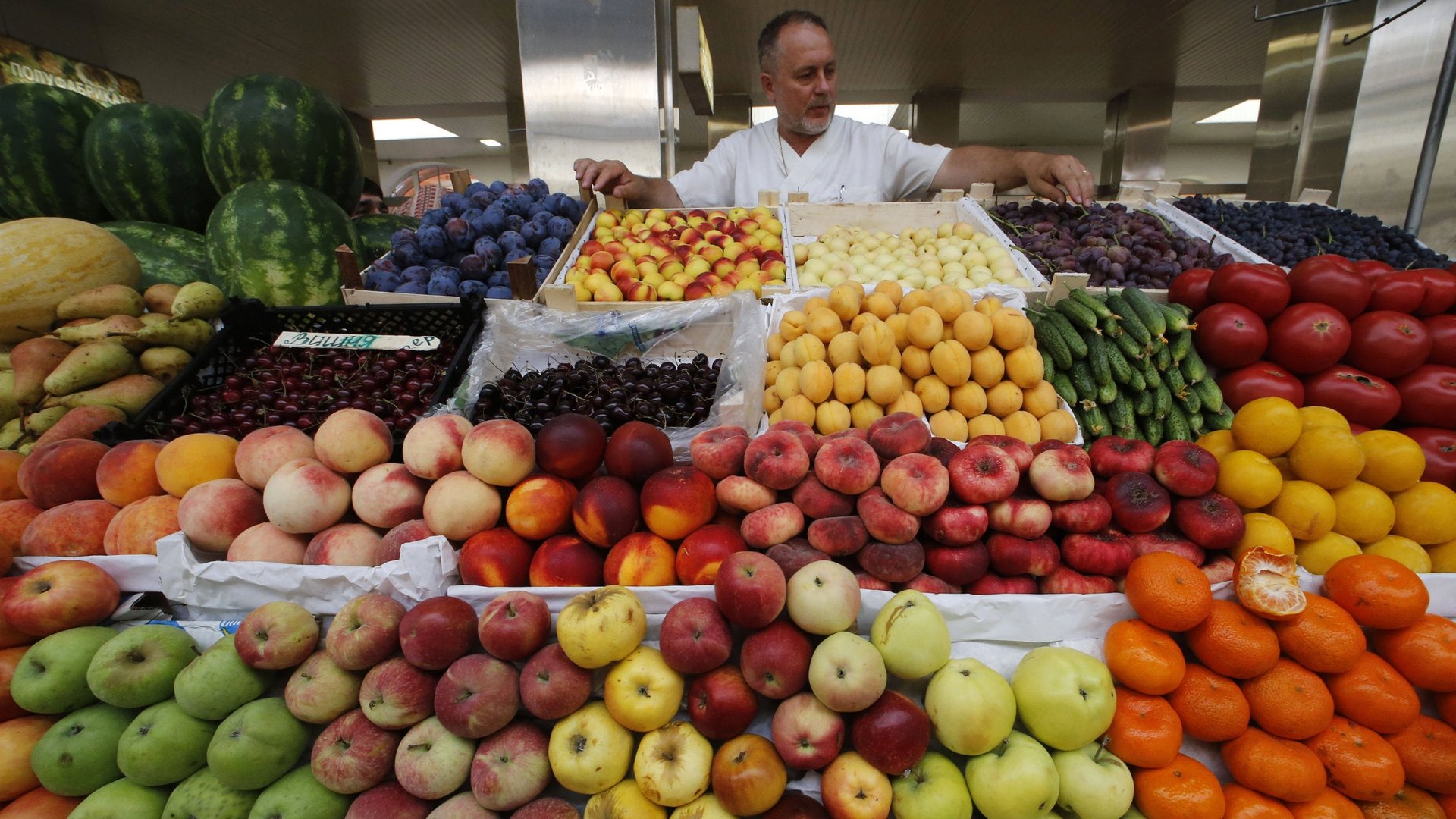Now that it has banned billions of dollars in food imports, how will Russia feed itself?
Russia banned food imports from the US, EU, Norway, Canada, and Australia today, in retaliation against the sanctions imposed on it by those countries in recent weeks.


Russia banned food imports from the US, EU, Norway, Canada, and Australia today, in retaliation against the sanctions imposed on it by those countries in recent weeks.
In a way, the Russian announcement codifies a number of restrictions already in force, generally justified by officials on health and hygiene grounds. The latest move (pdf in Russian), which will be in force for a year, affects 10% of Russia’s supply of pork, fish, and fruit, according to the agriculture minister.
Last year Russia imported $43 billion worth of food, or around a third of its total consumption. Now that it has banned imports from so many of its largest suppliers, how will it fill the gap?
Predictably, Russian officials say the important ban is great news for local businesses, and play down the pain that may be inflicted on shoppers. Yes, the cheese selection at supermarkets may suffer, they admit, but domestic producers will step in. Indeed, the shares of Russian seafood traders jumped in trading today, while stock in Norwegian fishing companies sank on the news that one of their key markets is now off-limits.
Alternative options
Behind the scenes, Russia is scrambling to enlist friendly countries to replace the American chicken, French cheese, Norwegian fish, Canadian pork, Australian beef, and many other products covered by the Kremlin’s ban. Its partners in the nascent Eurasian Union, Belarus and Kazakhstan, are sure to do their part. Belarus will boost its sales of noodles and cakes, among other things, its agriculture minister said today.
But this will only go so far, so even bigger deals are in the works to expand the trade in fruit with Turkey and poultry with Brazil. Brazilian chicken farmers reckon that they could boost exports to Russia four-fold. Russia’s food safety authority will fast-track licenses for a major expansion of fish imports from Chile, it said today. Beef producers in Argentina say they are keen to sell to Russia, if they can convince their own government to lift export restrictions.
Intriguingly, although Japan, New Zealand, and Switzerland have imposed some sanctions on Russia, they were not named in today’s food import ban. None of these countries is a major food exporter to Russia, but Japanese seafood and Swiss dairy products may become more prevalent on supermarket shelves in the near future. Kiwi cheese is also reportedly on the Kremlin’s menu, which will annoy embargoed Australia, which sold $73 million worth of dairy products to Russia last year.
The fallout
But investors aren’t too convinced that the banned products can be replaced easily, sending the shares of Russian retailers sharply lower today.
Economists are fretting about the impact that shortages may have on Russia’s high inflation rate, given that its consumers already spend a disproportionately large share of their income on food. This could force more interest rate hikes, harming Russia’s sputtering economy.
There may be some solace for Russians in the fact that foreign booze was left off the list of restrictions, and exotic new products from far-flung places are about to appear in shops. But that is cold comfort for most consumers, who are about to bear the brunt of the impact from Russia’s diplomatic spat with the West.